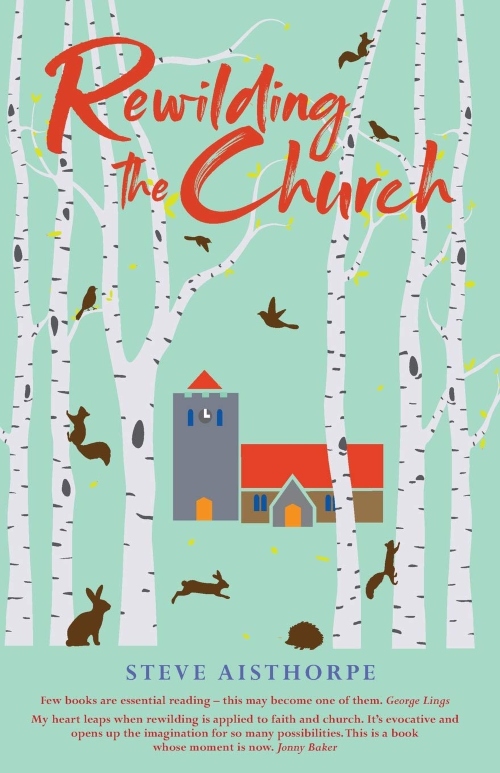Rewilding the Church by Steve Aisthorpe
Lots to offer for ministers and churches wanting to explore what it is to be the church in a new season - a timely book
 Rewilding the Church
Rewilding the Church
By Steve Aisthorpe
Saint Andrews, 2020
ISBN: 978-0715209813
Reviewed by Andy Goodliff
Rewilding the Church takes the concept of rewilding and asks what it would mean to apply it to the church. The idea of rewilding is an ecological one and is about allowing nature to be free from human control. Aisthorpe sees this as a good idea for the church, and not just a good idea, but one rooted in the Bible as well. Each chapter draws on different examples of rewilding and explores how they might generate a different way of undomesticating the church.
There is common ground in Aisthorpe’s vision for renewal in the work of Alan Hirsch and Mike Frost. Church life is too institutional, too managed, too risk-averse and what is needed is to refocus attention on Jesus, the Jesus of the gospels. Aisthorpe suggests churches should spend time in one gospel every year.
Like rewilding as a return to the freedom of nature, rewilding the church requires a return to Jesus, or ‘reintroduction’ of Jesus and an openness to the wildness of the Holy Spirit.
Having made the argument of renewed attention to Jesus, Aisthorpe moves to give an account of five rewilding practices: listening, simplifying, seeking, connecting and releasing. Aisthorpe suggests churches don’t spend enough time listening to God and what God is already doing; instead churches are too frenetic, too busy and too fearful. I found ideas of ‘one flock, many habitats’ helpful, recognising that much of our church life resembles a monoculture, and what is needed is more diversity — ‘creating habitats where those unable to thrive in traditional congregations can flourish’ (131). Here perhaps is something of what Rowan Williams has called a ‘mixed economy’ church.
Another interesting suggestion was around the concept of daylighting. This is about opening up rivers, in towns and cities, to daylight, to which Aisthorpe moves to refer to giving daylight to all the ‘riches of our faith’, the many different ‘streams of living water’, as Richard Foster has called them (148-150).
Aisthorpe’s final chapter on hopes talks about ‘bold, persistent experimentation’ and a move from ‘clericalism to everyone’ (Aisthorpe’s immediate context is the Church of Scotland, but Baptists are not immune to clericalism) and the ‘bouncebackability’ of the church that is founded on the resurrection of Jesus.
As we move out of this pandemic time, Rewilding the Church has lots to offer for ministers and churches wanting to explore what is to be the church in what feels like a new time, a new season. Before we all rush back to our well-managed services and activities, Aisthorpe would have Jesus reintroduced into our church life and give this wild Jesus room to sow new seeds. A timely book for a timely time.
Andy Goodliff is minister of Belle Vue Baptist Church, Southend on Sea
Baptist Times, 11/06/2021